Do Cashews Contain Cholesterol? How Much Cholesterol Is In Cashews?
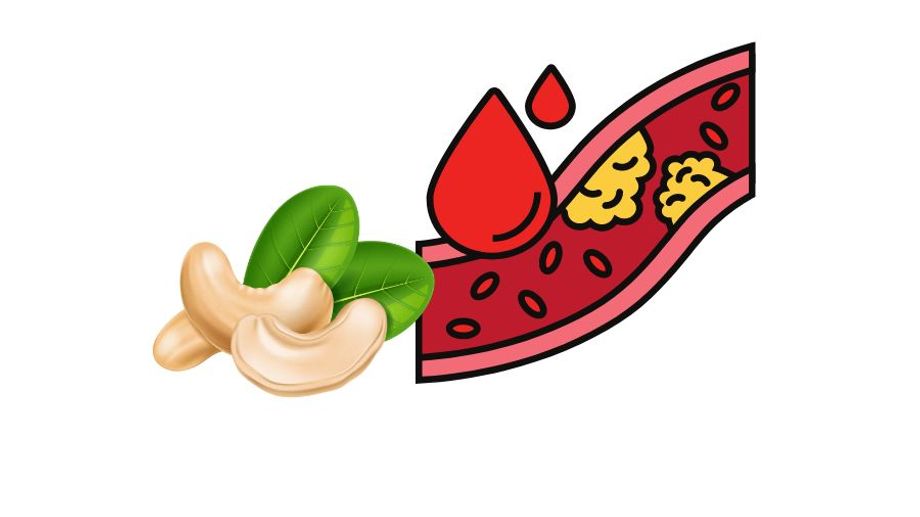
Mục lục
In recent years, when the world's medical science has many outstanding research marks. The general trend will be to find natural active ingredients in food and plants. Scientists have discovered cashews and the benefits they can bring to the body. So how much iron, protein, and calories does a cashew contain? Do cashews contain cholesterol? How many nuts a day is enough?
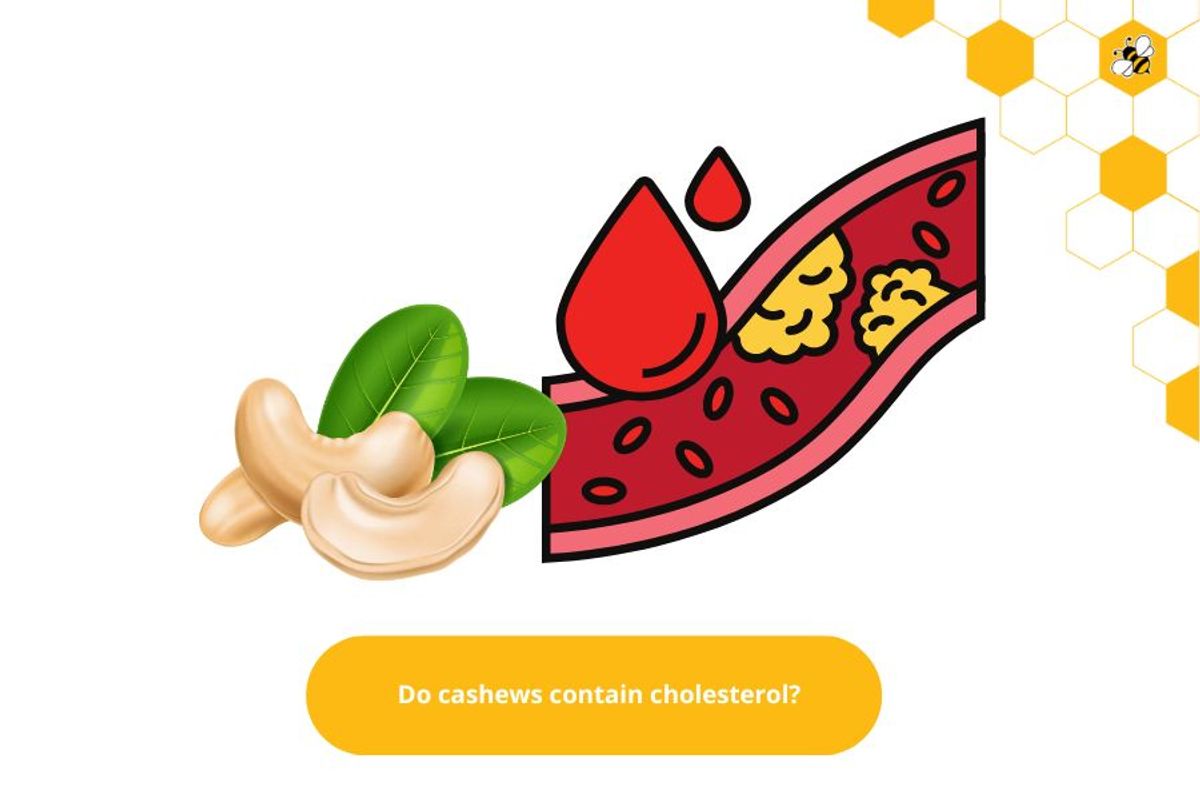
Let's find out together to answer these questions!
Do cashews contain cholesterol? How much cholesterol is in cashews
Cashews do not contain cholesterol, so they are very safe for your heart health. Cashews have many nutritional benefits:
Nutrient composition in 100g of cashews:
Energy: 605 Kcal
Protein: 18.4g
Glucid: 28.7g
Lipid: 46.3g
Fiber: 0.6g
Vitamins: vitamin B6 (0.417mg), vitamin K (34.1mg), vitamin E (0.9mg)
Minerals: Calcium (28mg), Sodium (12mg), Potassium (660mg), Magnesium (292mg), Folate (25 mcg).
Nutritional Benefits of Cashews:
Good for Heart Health: Cashews help reduce the risk of heart disease by lowering blood pressure and cholesterol. The monounsaturated and polyunsaturated fatty acids in cashews can reduce LDL cholesterol and triglyceride levels.
Prevent Gallstones: Cashews help reduce the risk of gallstone formation, as they do not contain cholesterol.
Weight Control: Regular consumption of cashews can help maintain weight.
Nutrient composition in 100g of cashews:
Energy: 605 Kcal
Protein: 18.4g
Glucid: 28.7g
Lipid: 46.3g
Fiber: 0.6g
Vitamins: vitamin B6 (0.417mg), vitamin K (34.1mg), vitamin E (0.9mg)
Minerals: Calcium (28mg), Sodium (12mg), Potassium (660mg), Magnesium (292mg), Folate (25 mcg).
Nutritional Benefits of Cashews:
Good for Heart Health: Cashews help reduce the risk of heart disease by lowering blood pressure and cholesterol. The monounsaturated and polyunsaturated fatty acids in cashews can reduce LDL cholesterol and triglyceride levels.
Prevent Gallstones: Cashews help reduce the risk of gallstone formation, as they do not contain cholesterol.
Weight Control: Regular consumption of cashews can help maintain weight.
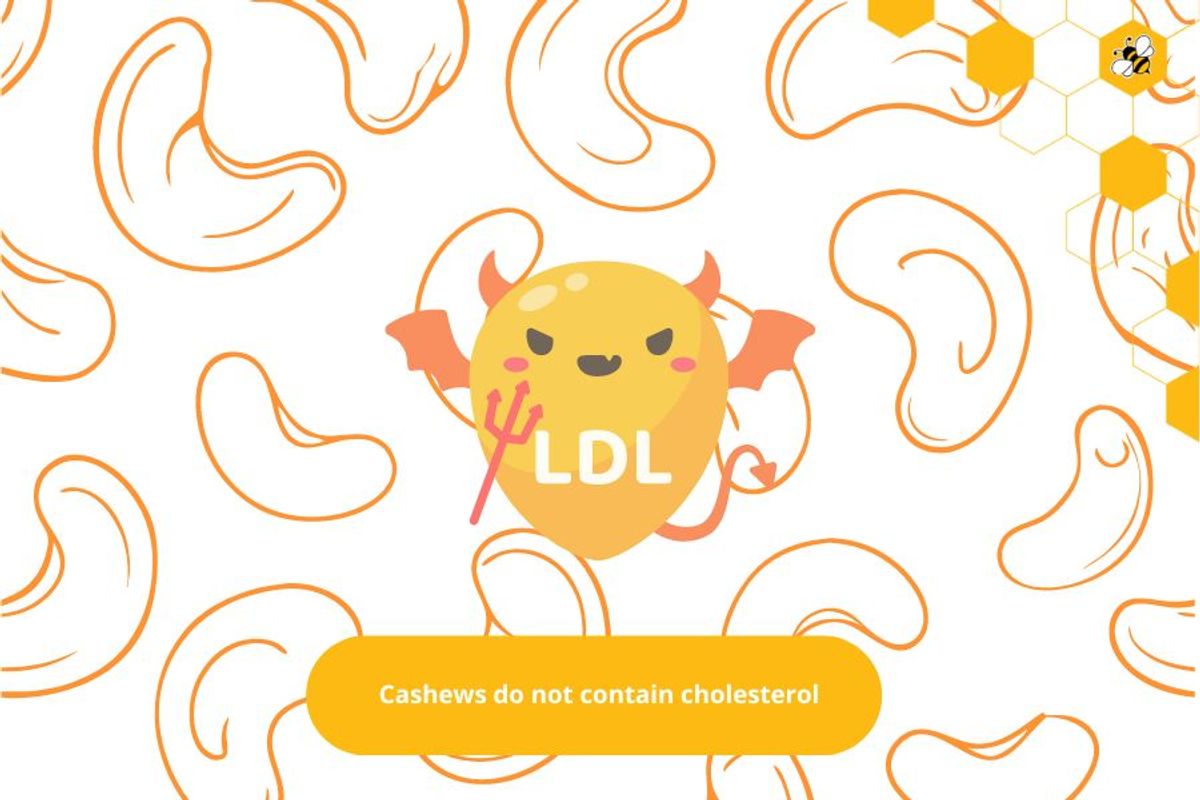
So, regularly add cashews to your diet to enjoy these benefits!
What is cholesterol?
Cholesterol is one of the components of blood lipids, which also plays a very important role in the body's activities. It is an indispensable factor in the functioning of nerve fibers and is also involved in the production of certain hormones, helping the body function normally and healthily.
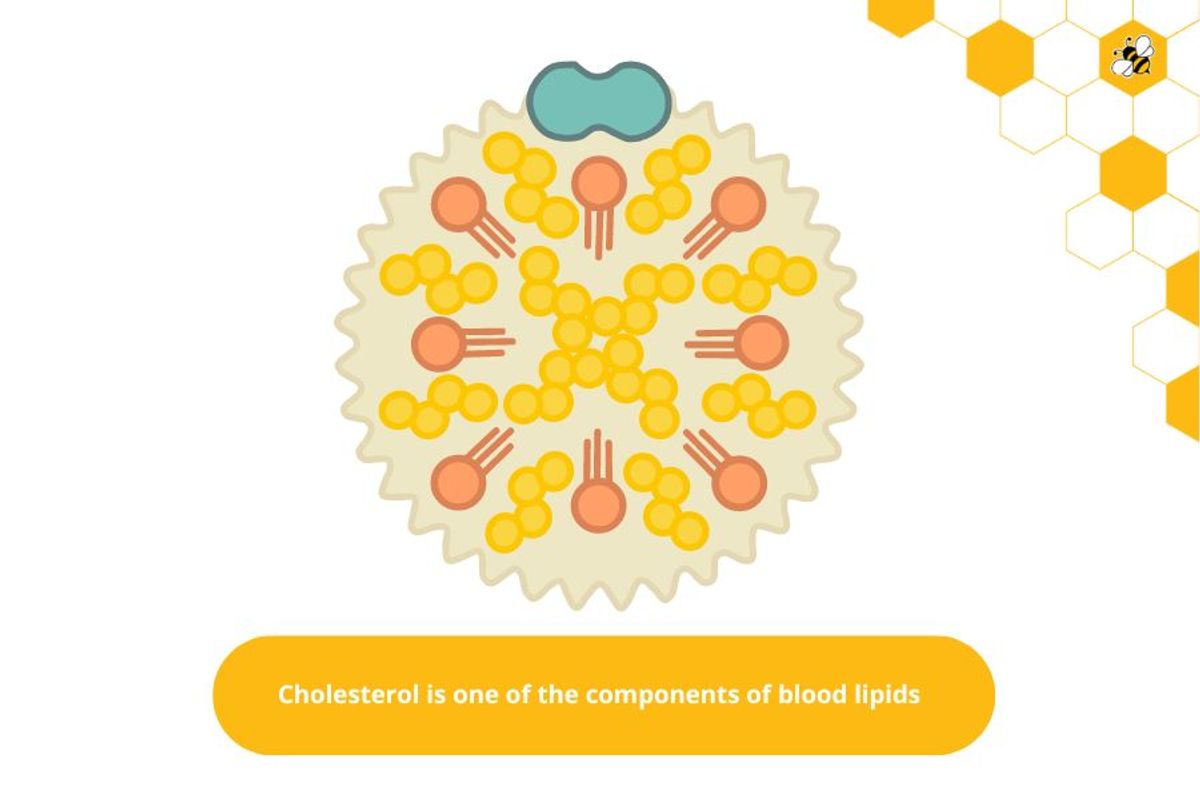
Cholesterol comes from two sources
Synthesized in the body: About 75% of blood cholesterol is produced in the liver and other organs in the body.
From food: The rest of cholesterol comes from food. Foods containing cholesterol are usually of animal origin such as meat, milk, egg yolks and animal organs.
From food: The rest of cholesterol comes from food. Foods containing cholesterol are usually of animal origin such as meat, milk, egg yolks and animal organs.
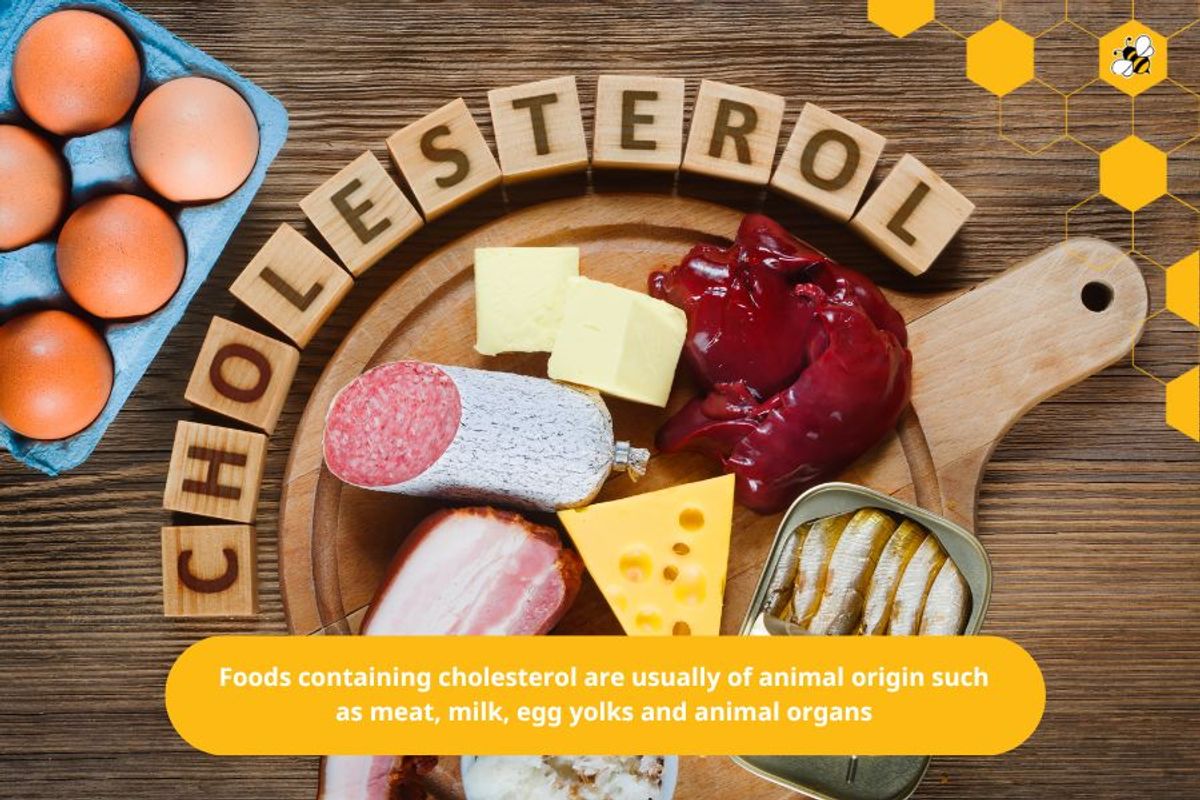
Cholesterol is classified into two main types
LDL - Cholesterol (bad type): LDL - cholesterol is the component that plays a role in transporting most of the cholesterol in the body. If the amount of this cholesterol increases in the blood, there is a risk of fat deposition in the blood vessel walls, causing atherosclerosis. This can lead to dangerous complications such as myocardial infarction or stroke.
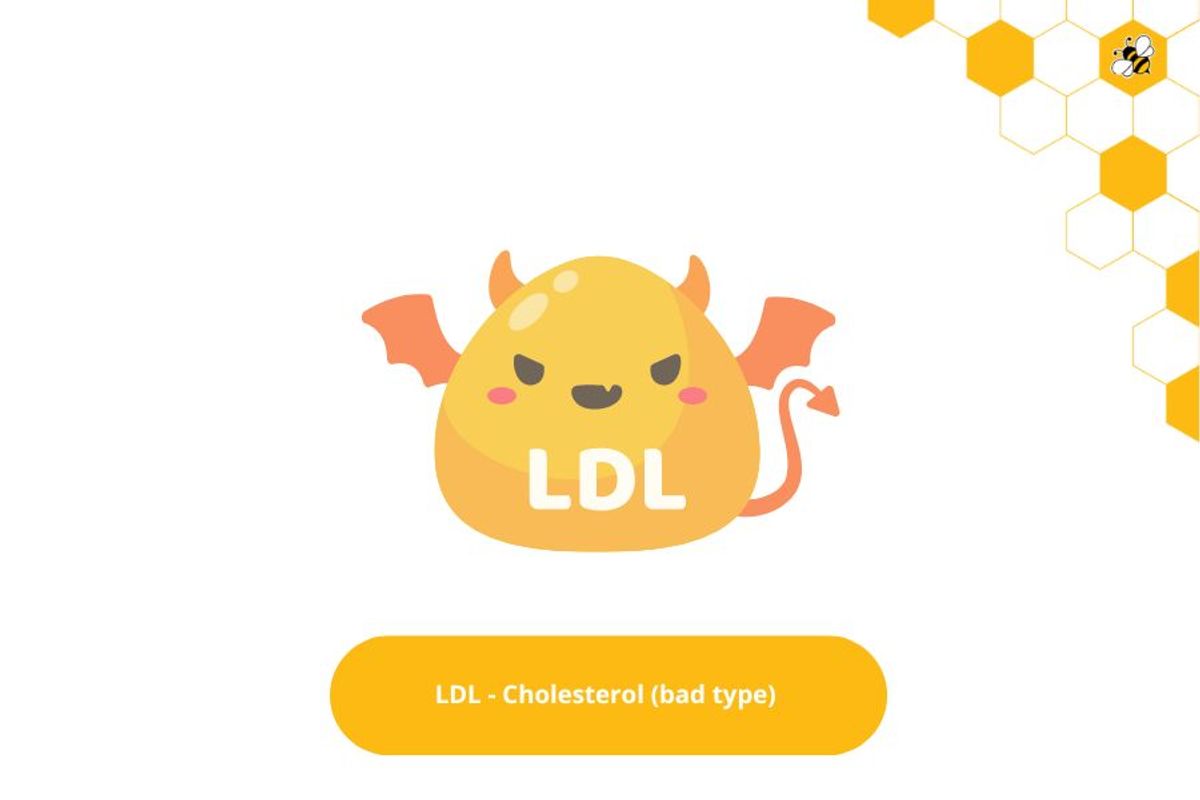
HDL - Cholesterol (good type): HDL - cholesterol accounts for about 25 - 30% of cholesterol in the blood. HDL - cholesterol plays a role in transporting cholesterol from the blood to the liver and removing cholesterol from atherosclerotic plaques. Therefore, HDL - cholesterol is called "good" cholesterol.
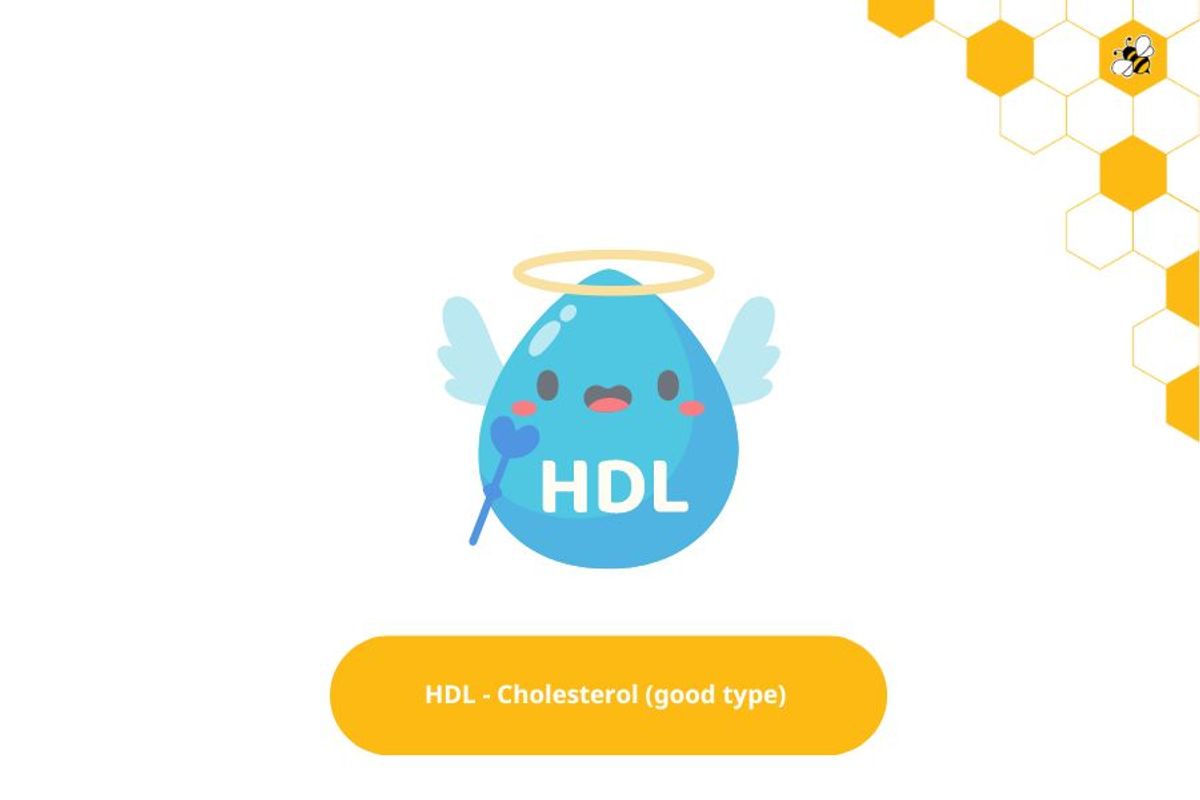
In addition, Lp(a) Cholesterol, a variant of LDL - cholesterol, can lead to the risk of forming atherosclerotic plaques. Regularly checking your blood cholesterol levels is important to assess your cardiovascular health.
Effects of cholesterol on the body
Cholesterol has an important impact on the health of the body. Some effects of cholesterol:
Effects on the cardiovascular system
LDL cholesterol (bad type): Increased levels of LDL - -cholesterol in the blood can cause atherosclerosis, narrowing the lumen and causing the risk of myocardial infarction.
HDL cholesterol (good type): HDL - cholesterol helps remove cholesterol from atherosclerotic plaques, reducing the risk of cardiovascular disease.
HDL cholesterol (good type): HDL - cholesterol helps remove cholesterol from atherosclerotic plaques, reducing the risk of cardiovascular disease.
Risk of cardiovascular disease: High levels of cholesterol in the blood can lead to cardiovascular problems such as stroke, myocardial infarction, and coronary artery disease.
HDL cholesterol (good type): HDL - cholesterol helps remove cholesterol from atherosclerotic plaques, reducing the risk of cardiovascular disease.
HDL cholesterol (good type): HDL - cholesterol helps remove cholesterol from atherosclerotic plaques, reducing the risk of cardiovascular disease.
Risk of cardiovascular disease: High levels of cholesterol in the blood can lead to cardiovascular problems such as stroke, myocardial infarction, and coronary artery disease.
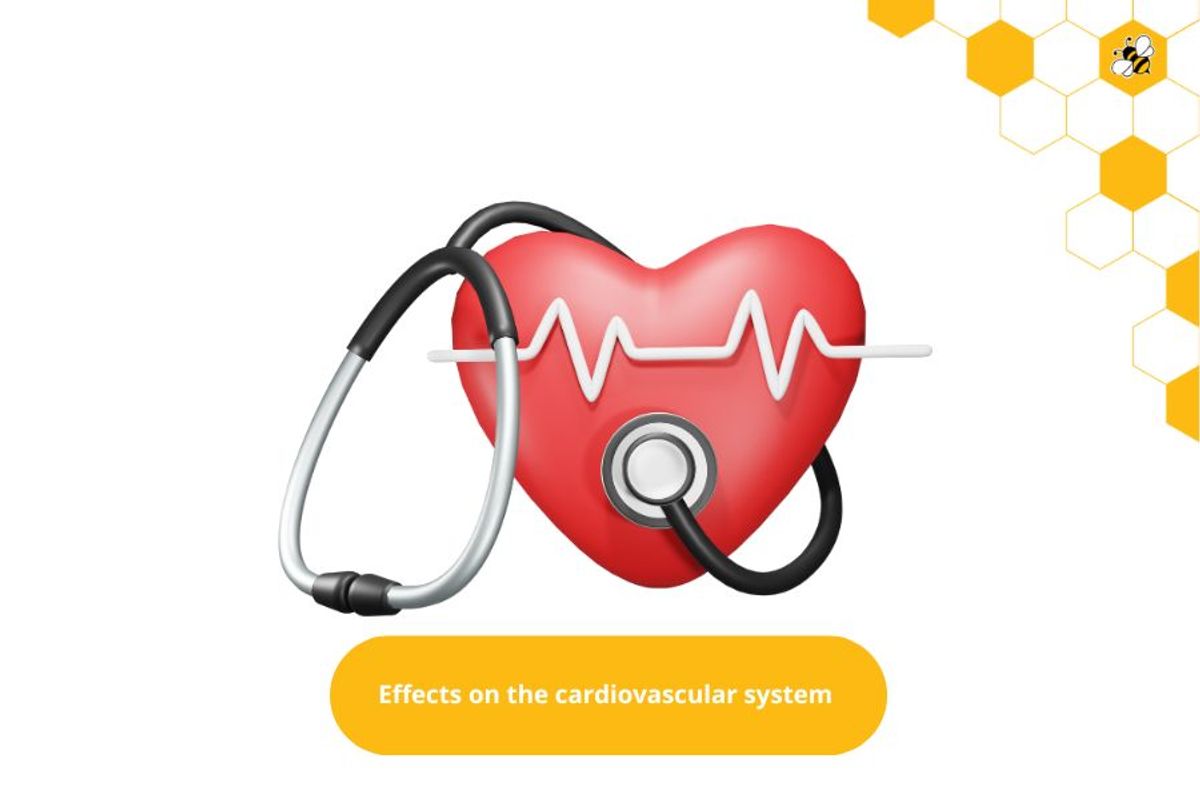
Gallstones
Cholesterol can contribute to the formation of gallstones, causing symptoms such as pain on the right side of the abdomen. The mechanism of cholesterol gallstone formation in the gallbladder involves the liver producing cholesterol for metabolism. Cholesterol is then transferred to bile and stored in the gallbladder. To transport this substance, cholesterol must be dissolved in bile. However, because it is fat, cholesterol needs bile acids and lecithin to dissolve in bile. If the amount of cholesterol is too much and not proportional to the bile acids and lecithin, the insoluble cholesterol will accumulate in the gallbladder and gradually stick together to form stones. In addition, mucus secreted to concentrate bile can also combine with cholesterol and calcium to create bile sludge - a precursor to gallstones.
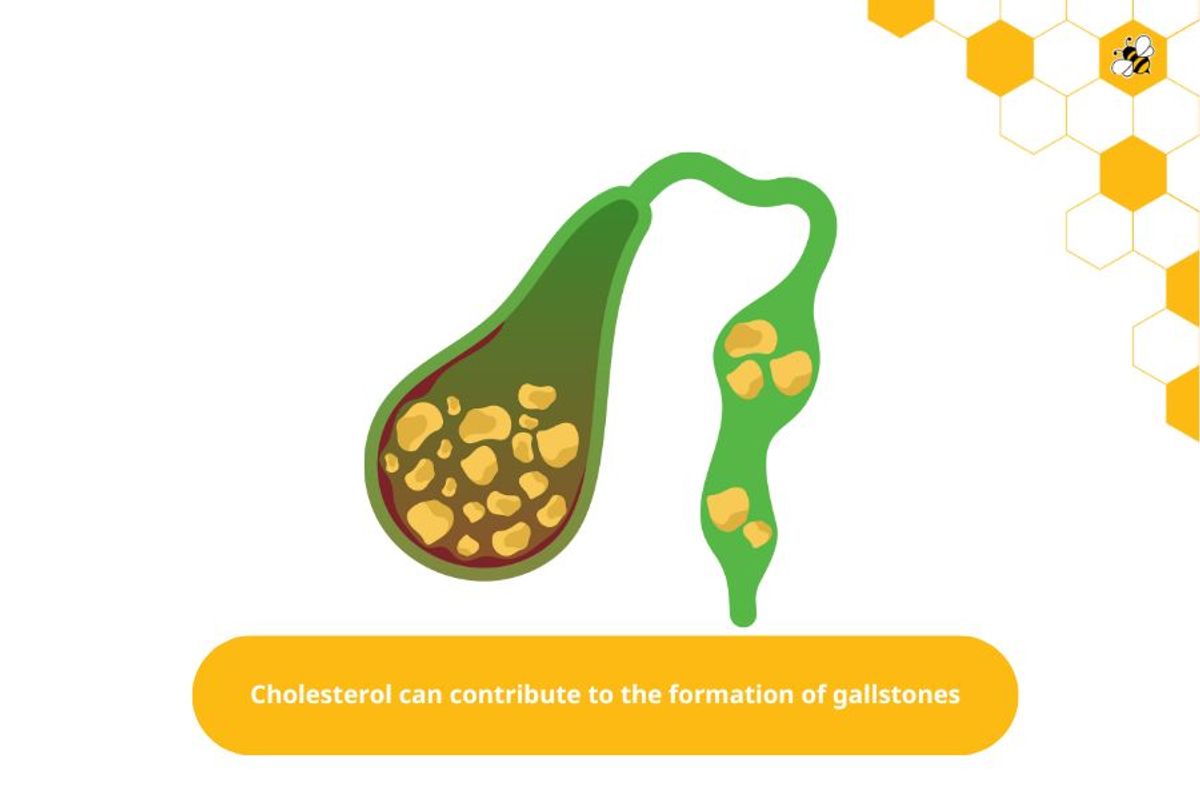
Effects on the brain
One of the most common effects of high blood cholesterol is the formation of atherosclerotic plaques in the walls of arteries. This condition increases the risk of blockage of blood vessels in the brain, leading to stroke. For the brain, high blood cholesterol levels over a long period can increase the risk of memory loss diseases, including Alzheimer's. Studies have shown that increased blood cholesterol contributes to the onset of Alzheimer's disease. This effect comes mainly from "bad" LDL cholesterol.
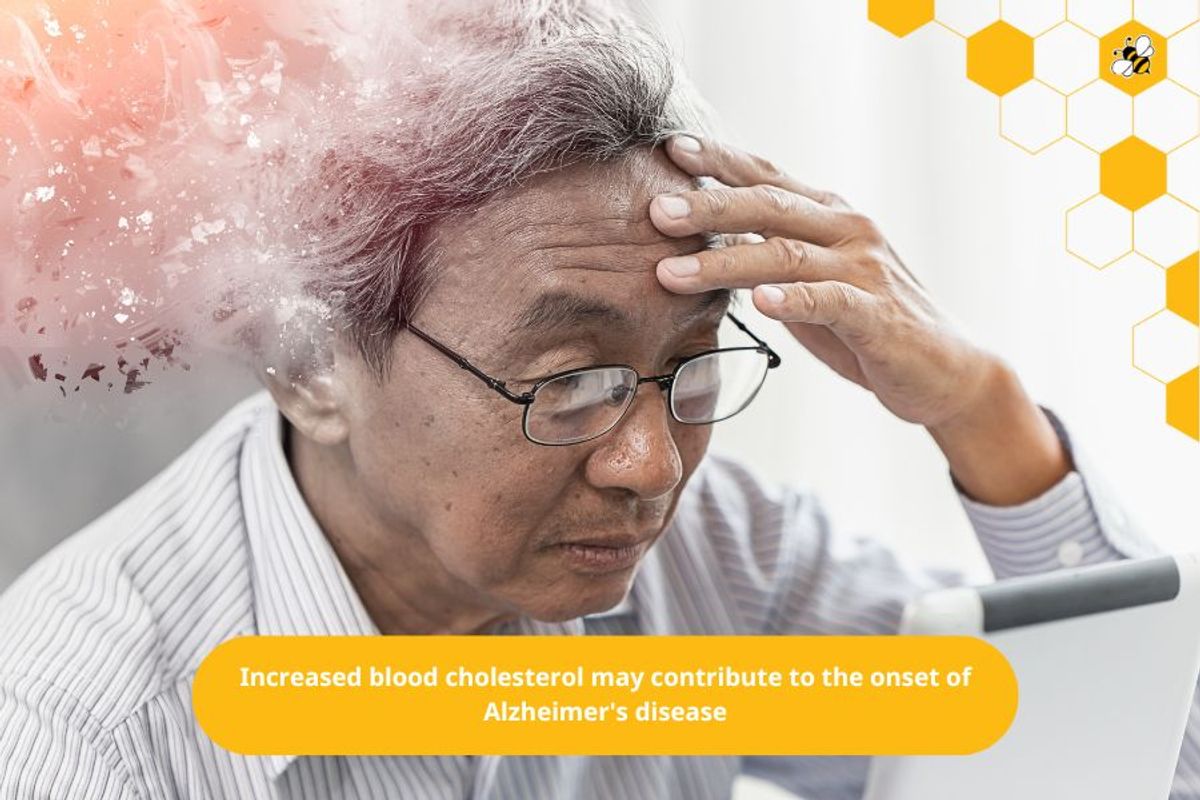
Effects on the liver
High cholesterol can damage the liver and increase the risk of fatty liver disease. Cholesterol has an important effect on the liver.
Here are some points related to the relationship between cholesterol and the liver:
Liver functions related to cholesterol:
Cholesterol production and removal: The liver is responsible for the production and removal of cholesterol in the body. Cholesterol is an essential part of making hormones, vitamin D, and enzymes needed for digestion.
Lipid metabolism: The liver is involved in lipid metabolism, synthesizing neutral lipids and cholesterol. In addition, the liver synthesizes phospholipids, which play an important role in the structure of serum lipoproteins.
Liver conditions that affect cholesterol:
Non-alcoholic fatty liver disease (NAFLD): This is a common condition when the liver does not function properly. NAFLD is often seen in people who are obese or have diabetes. It is associated with dyslipidemia, which is abnormal levels of cholesterol and similar compounds in the blood. NAFLD can cause lipodystrophy, an uneven distribution of fat in the body.
Cirrhosis: Cirrhosis causes scarring and affects the liver's ability to perform basic functions. Cirrhosis can increase cholesterol levels and affect a person's health.
Liver functions related to cholesterol:
Cholesterol production and removal: The liver is responsible for the production and removal of cholesterol in the body. Cholesterol is an essential part of making hormones, vitamin D, and enzymes needed for digestion.
Lipid metabolism: The liver is involved in lipid metabolism, synthesizing neutral lipids and cholesterol. In addition, the liver synthesizes phospholipids, which play an important role in the structure of serum lipoproteins.
Liver conditions that affect cholesterol:
Non-alcoholic fatty liver disease (NAFLD): This is a common condition when the liver does not function properly. NAFLD is often seen in people who are obese or have diabetes. It is associated with dyslipidemia, which is abnormal levels of cholesterol and similar compounds in the blood. NAFLD can cause lipodystrophy, an uneven distribution of fat in the body.
Cirrhosis: Cirrhosis causes scarring and affects the liver's ability to perform basic functions. Cirrhosis can increase cholesterol levels and affect a person's health.
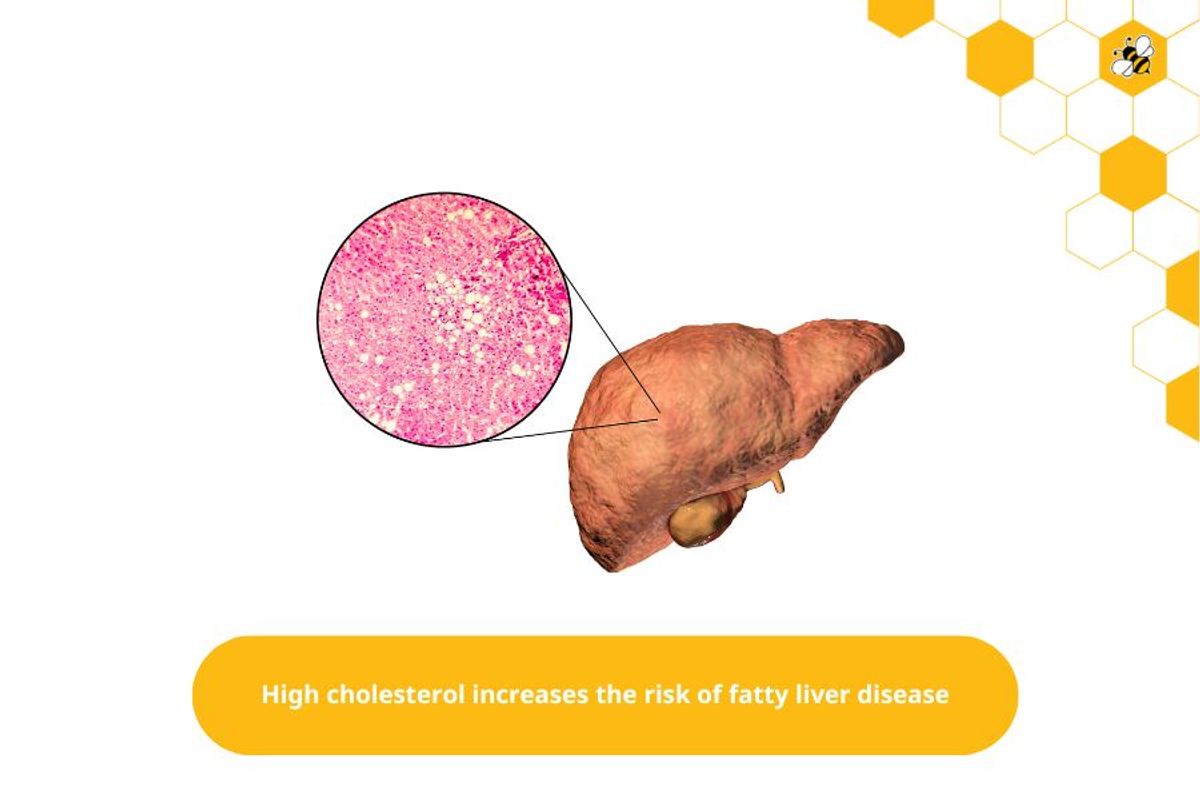
To maintain heart health, maintain a healthy lifestyle, eat a balanced diet, and check your cholesterol regularly.
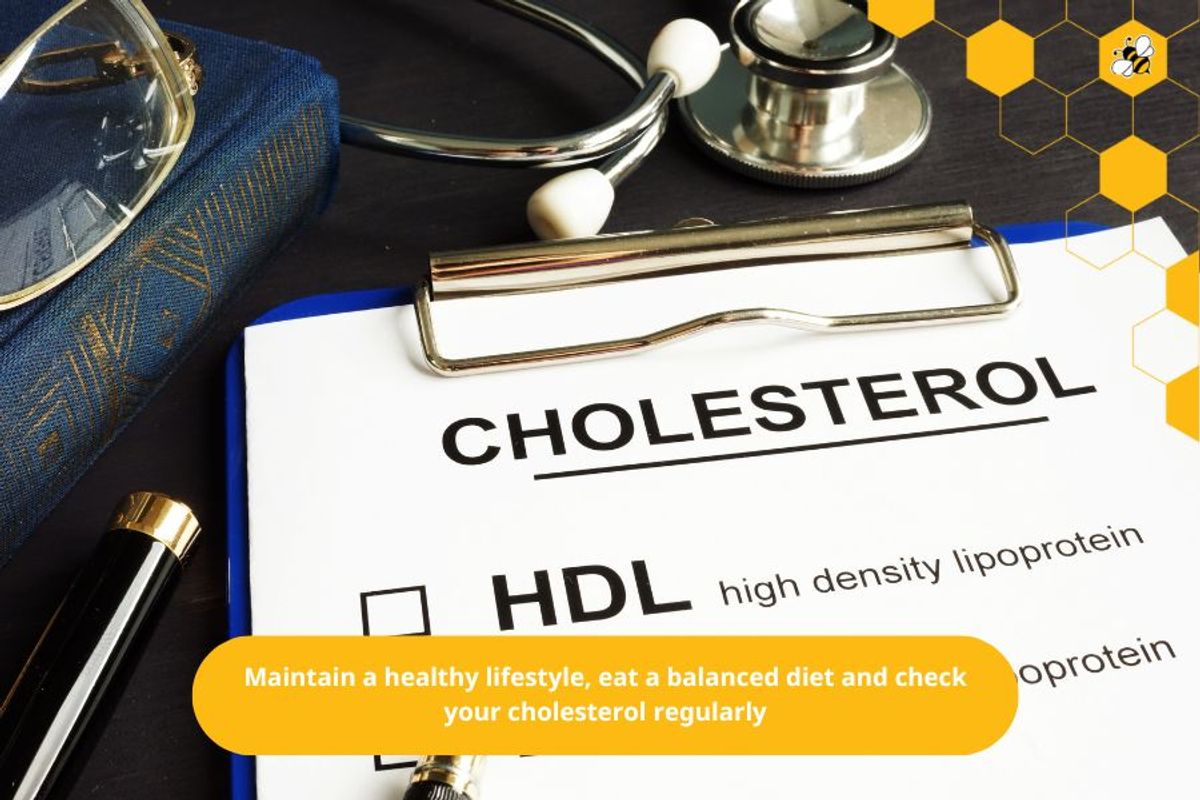
How to use cashews in your diet to regulate cholesterol
To regulate cholesterol and take advantage of the benefits of cashews, you can combine them with other foods in your daily diet. Some suggestions:
Cashews with fresh fruit: Cashews combined with fresh fruit is a good choice. Fruit contains fiber and antioxidants, which help improve heart health and control cholesterol.
Cashews in salads: Add cashews to salads with green vegetables, tomatoes, cucumbers, and other vegetables. This not only adds flavor but also provides heart-healthy fats.
Cashews with other nuts: Combine cashews with sunflower seeds, flax seeds, walnuts, or almonds to increase fiber and monounsaturated and polyunsaturated fats.
Cashews in vegetarian dishes: If you are a vegetarian, cashews can be a good source of protein and fat. Use them in vegetarian dishes such as vegetarian vermicelli soup, vegetarian vermicelli, or vegetarian Quang noodles.
Cashews with fresh fruit: Cashews combined with fresh fruit is a good choice. Fruit contains fiber and antioxidants, which help improve heart health and control cholesterol.
Cashews in salads: Add cashews to salads with green vegetables, tomatoes, cucumbers, and other vegetables. This not only adds flavor but also provides heart-healthy fats.
Cashews with other nuts: Combine cashews with sunflower seeds, flax seeds, walnuts, or almonds to increase fiber and monounsaturated and polyunsaturated fats.
Cashews in vegetarian dishes: If you are a vegetarian, cashews can be a good source of protein and fat. Use them in vegetarian dishes such as vegetarian vermicelli soup, vegetarian vermicelli, or vegetarian Quang noodles.

Remember to maintain a balanced and varied diet to maximize the benefits of cashews and maintain cardiovascular health!
Summary
Through this, you will understand more, have the most complete and necessary information about this valuable nut, and know how much iron, calories, and protein are contained in cashews. Do cashews contain cholesterol? How many nuts a day is enough? To be able to build and maintain a suitable diet, improve health, prevent diseases for yourself as well as bring knowledge to everyone around about the benefits of cashews.